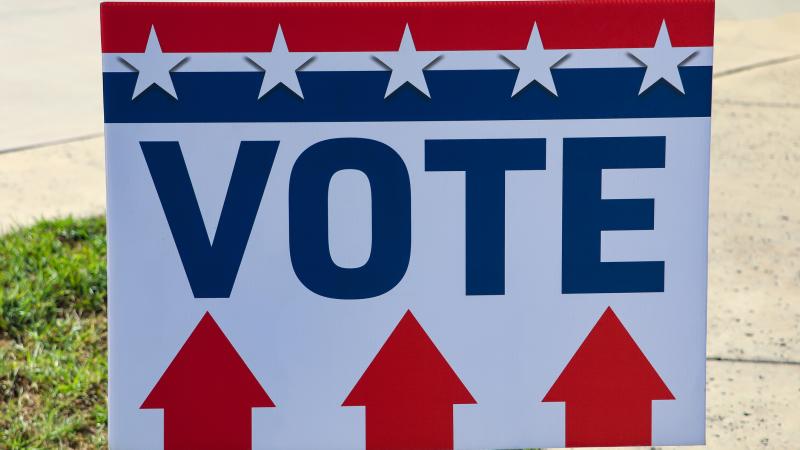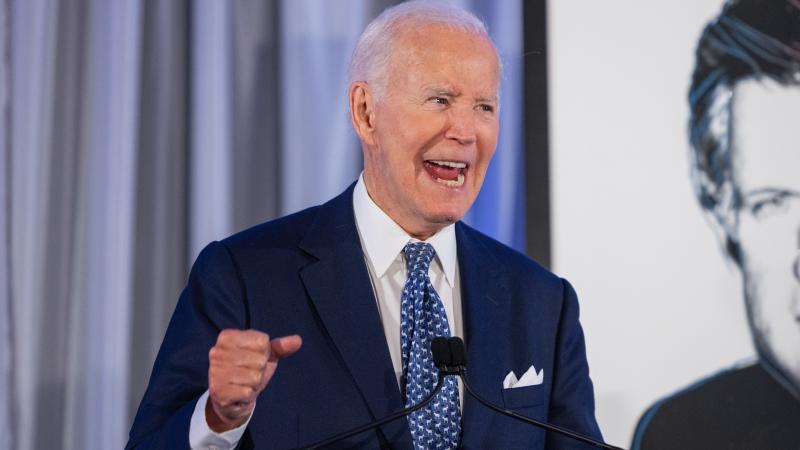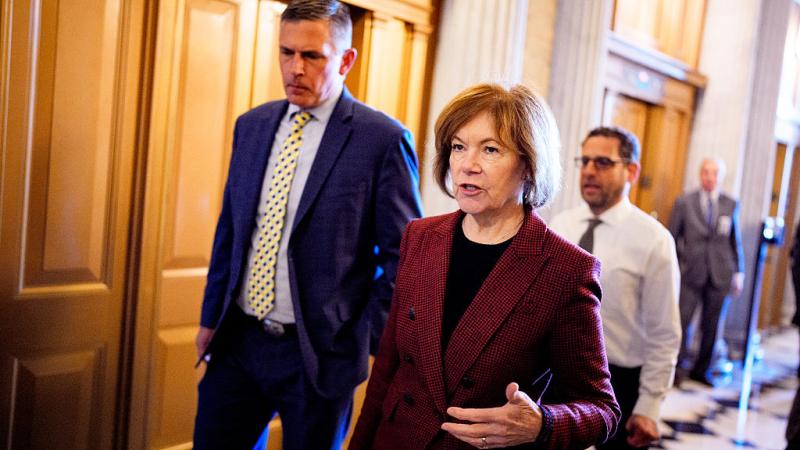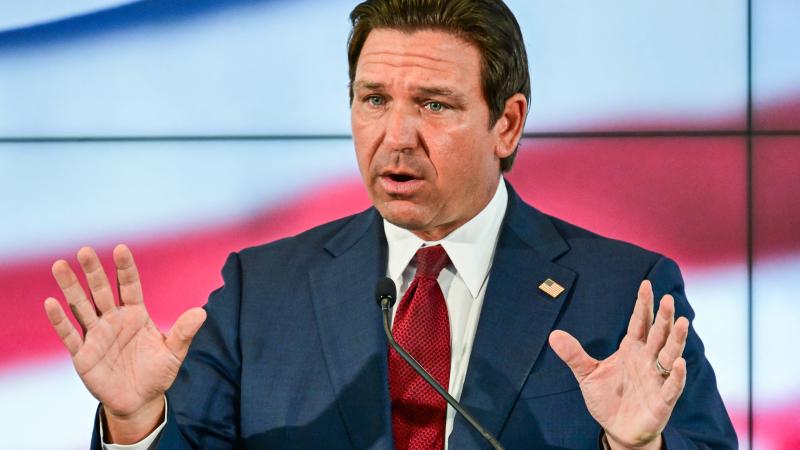Roy Cooper's lenient crime policies get harsh spotlight as North Carolina's Senate race heats up
Cooper’s lead in the race has narrowed since the murder of Iryna Zarutska on public transportation by a repeat criminal.
Former North Carolina Governor Roy Cooper, a Democrat, is painting himself as a moderate seeking to represent a narrowly divided state in the U.S. Senate, but deeper scrutiny of his crime policies — some of which follow the failed Obama/Biden script — could come back to bite him.
Cooper is facing fire for his policies and actions while he was governor that his opponents say created a soft-on-crime atmosphere in the state, from agreeing to release thousands of convicted criminals from prison early during COVID-19 to establishing a commission that argued for cashless bail policies.
Hallmarks of leftists' approach to "social justice"
Republicans in the legislature and Cooper’s Republican opponent in the senate race say that Cooper’s crime policies while he was the state’s governor created the conditions that threaten public safety. They say his crime policies conflict with his efforts to paint himself as a "moderate" in the race.
When he launched his campaign for the U.S. Senate, Cooper emphasized his bipartisan record of working with an overwhelmingly Republican state legislature to balance the state budget and pass expansions to Medicaid.
But while a balanced budget and Medicaid reform do matter to his constituency, other issues may loom larger. A poll from WRAL last year showed a strong rebuke of Joe Biden’s record on immigration: Only 7% said they support the status quo and don’t want to see any change on border policies. The most popular option among poll respondents was a policy that would “reduce illegal border crossings, but increase ways to enter the US legally.”
The recent killing of Ukrainian refugee Iryna Zarutska on a Charlotte, North Carolina, light rail train captured the attention of the nation at-large and prompted a renewed focus from Republicans on the governor’s crime policies.
The suspect, DeCarlos Brown Jr., was captured on video attacking Zarutska, who came to the United States with family members after the Russian invasion of Ukraine in 2022, with a knife on Charlotte’s Lynx Blue Line in August. She died at the scene after suffering mortal wounds. Brown had 14 previous arrests in Mecklenburg County for various violent and nonviolent offenses and spent five years in prison for armed robbery. Brown also reportedly has schizophrenia.
At the time of the attack, he was on pretrial release for a misdemeanor offense of the misuse of the 911 emergency number.
Ending Cooper's "cashless bail" policies
In the wake of Zarutska’s murder, state Republican lawmakers launched an effort to rein in a task force established by Cooper and are pushing to end the possibility of cashless bail in the state justice system, saying the policies perpetuate the same types of justice system failures that allowed Zarutska’s killer to roam the streets.
Republicans have called out two initiatives specifically for contributing to the problem: a special Task Force for Racial Equity in Criminal Justice (TREC) and Cooper’s decision to grant early release to one-eighth of the state’s prison population during the height of the COVID-19 pandemic.
Michael Whatley, former Chair of the Republican Party during the 2024 election, who is running against Cooper for the Senate seat, told the "Just the News, No Noise" TV show that Cooper “bears direct responsibility for the crimes that we've been seeing in North Carolina, particularly in Charlotte, with the death of [Zarutska], because he's the one who signed an executive order to reimagine law enforcement.” Whatley was referring to the order Cooper signed to establish the TREC.
Whatley also criticized the former governor for painting himself as a moderate while supporting these policies.
“This is a guy who has been radically out of step with North Carolina during his entire tenure as governor, and we need to make sure the voters of North Carolina understand that this is not an 'aw shucks' southern Blue Dog Democrat, that this is a full-tilt card-carrying member of the Progressive Caucus,” the GOP candidate added.
Recent polling shows Cooper's lead in the Senate race has narrowed significantly following Zarutska's murder. A Carolina-Harper Polling poll from September had Cooper at 46.1% to Whatley’s 41.9%. A little over a quarter of North Carolina voters, 25.8%, said that judges giving light sentences and releasing repeat offenders “is the main cause of violent crime in North Carolina,” the poll showed.
Bragging rights: Who's tougher on crime?
“Roy Cooper is the only candidate who spent his career prosecuting violent criminals and keeping thousands of them behind bars as attorney general, and signing tough on crime laws and stricter bail policy as governor. DC insider and Big Oil lobbyist Michael Whatley is desperate to distract from his support for cuts to law enforcement that make North Carolinians less safe,” a Cooper campaign spokesman told Just the News.
Republican state leaders say the TREC promoted “soft-on-crime” policies, primarily by pushing cashless bail. The Task Force was formed by Cooper in June 2020 to mollify the nationwide George Floyd Black Lives Matter protests. Its mandate was to investigate “policies and procedures that disproportionately affect communities of color,” and to propose reforms “to ensure racial equity in North Carolina’s criminal justice system,” the Carolina Journal reported.
Among the recommendations delivered by the panel was a proposal to end cash bail for Class I, II and III misdemeanors, except in cases of public safety risks. It also recommended several pretrial reforms intended to deal with racial disparities.
Then-North Carolina Attorney General and current Governor Josh Stein, a Democrat, was on the panel along with other senior state officials.
North Carolina Speaker of the House Destin Hall and Senate Leader Phil Berger, both Republicans, said that these recommendations would create dangerous public safety effects, similar to the case of the murder of Zarutska.
“This was largely the result of somebody being released from jail who should not have been released,” Hall said. “An individual with a violent history, a convicted felon with multiple charges and mental health issues, somehow was allowed to walk out of jail by simply signing a written promise to appear.”
Ending "no-cash" bail: Some compromise
The pair announced plans at a press conference last month to introduce legislation that would rein in the North Carolina chief executive’s ability to form special task forces like TREC and restrict the use of cashless bail, if not end the practice completely.
“We have been speaking about what we can do to prevent the tragedy that happened in Charlotte from ever happening again in this state,” said Hall. “So we’re still in the homework stage, finding out how this specific case happened. But from what we can tell so far, this was largely as a result of somebody being released from jail who should not have been released from jail. An individual who had a violent history, a convicted felon, had multiple charges, clearly had mental health issues, had multiple interactions with the Charlotte-Mecklenburg Police Department, and somehow was allowed to walk out of the jail by a magistrate, by simply signing a written promise to appear again… We’re looking at several possible legislative actions to reform various issues with our magistrates with pretrial conditions of release.”
Cooper also came under fire for approving the early release of 3,500 inmates—one-eighth of the state’s prison population—during the COVID-19 pandemic, caving to a lawsuit from the North Carolina branch of the National Association for the Advancement of Colored People. The organization sued the state alleging that the conditions inside state prisons during the pandemic violated prisoner rights according to the state constitution.
The state Republican Party warned that it “marks one of the largest prisoner releases in the COVID-19 era,” saying it was particularly concerning because “the settlement lacks specific language to prohibit violent offenders and convicted sex offenders from getting an early release.”
While Republicans criticize the task force and Cooper’s inmate releases, the former governor also collaborated with Republican lawmakers in 2024 to reform the state’s pretrial process in an effort to prevent certain violent criminals from being released rapidly if they are able to pay bail.
The North Carolina Pretrial Integrity Act decreased the number of cases for which unelected magistrates could set bond and made judges responsible for deciding whether defendants could be released from detention before trial for a set of more serious charges, including rape, arson and human-trafficking.
The changes, which were championed by State Republican Representative John Bradford, followed an incident in March 2023 when a paramedic suspected of sexually assaulting a 17-year-old girl was released just 37 minutes after he was booked after posting a $15,000 unsecured bond.
The Facts Inside Our Reporter's Notebook
Links
- emphasized his bipartisan record
- 14 previous arrests in Mecklenburg County
- Cooper's lead in the senate race has narrowed significantly
- state leaders say the TREC promoted âsoft-on-crimeâ policies
- said that these recommendations would create dangerous public safety effects
- announced plans at a press conference
- approving the early release of 3,500 inmates
- collaborated with Republican lawmakers in 2024
- released just 37 minutes after he was booked














